Chișinău, April 25, 2024
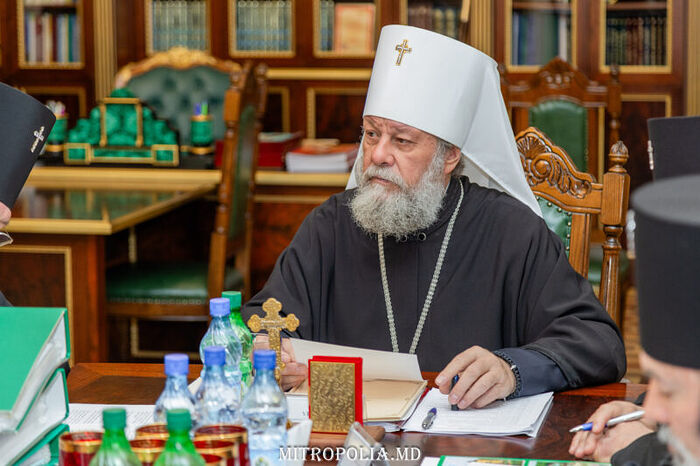 Photo: mitropolia.md
Photo: mitropolia.md
The primate of the Moldovan Orthodox Church of the Moscow Patriarchate is calling clergy who have left the jurisdiction to repent and return.
Two overlapping canonical structures operate in Moldova: the Moscow Patriarchate’s Metropolis of Chișinău and All Moldova, and the Romanian Orthodox Church’s Metropolis of Bessarabia, which have essentially tolerated each other since the latter was reestablished in 1991 by a bishop formerly of the Russian Church’s structure.
However, since the start of the war in Ukraine, a number of clerics have left the Metropolis of Chișinău and joined the Metropolis of Bessarabia without a canonical release, several of whom have subsequently been defrocked or suspended by the authorities of the Russian Church’s structure. However, the Romanian Church’s structure, with the backing of the Romanian Holy Synod, 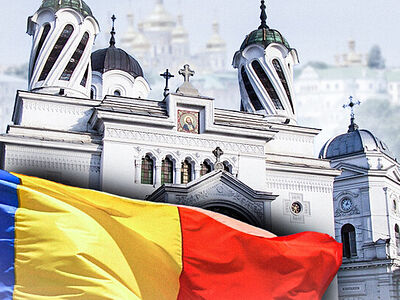 Romanian Synod establishes “Romanian Orthodox Church of Ukraine,” Ukrainian hierarch respondsA number of important decisions were made during the session of the Holy Synod of the Romanian Orthodox Church held in Bucharest on February 29.
Romanian Synod establishes “Romanian Orthodox Church of Ukraine,” Ukrainian hierarch respondsA number of important decisions were made during the session of the Holy Synod of the Romanian Orthodox Church held in Bucharest on February 29.
“>does not recognize these canonical sanctions, as it considers itself the legitimate Church in Moldova.
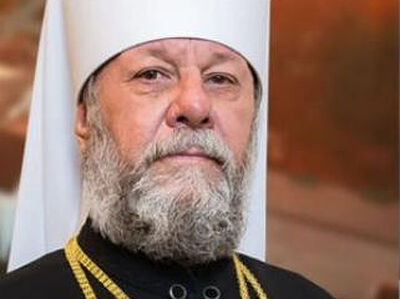 Moldovan Church under Moscow calls Romanian Church to dialogue as tensions riseThe head of the Moldovan Orthodox Church under the Moscow Patriarchate is calling on the Patriarch of the Romanian Orthodox Church to enter into a dialogue about the aggravated ecclesiastical situation in Moldova.
Moldovan Church under Moscow calls Romanian Church to dialogue as tensions riseThe head of the Moldovan Orthodox Church under the Moscow Patriarchate is calling on the Patriarch of the Romanian Orthodox Church to enter into a dialogue about the aggravated ecclesiastical situation in Moldova.
“>Last month, His Eminence Metropolitan Vladimir of Chișinău of the Moscow Patriarchate issued a call to His Beatitude Patriarch Daniel of Romania to enter into dialogue concerning the sharp ecclesiastical tensions.
And now, he has issued an appeal to the Church’s former clergy, approved by the Moldovan Synod yesterday. The appeal reads:
To the clerics who have left the Moldovan Orthodox Church,
We observe with pain and disappointment your holiness’ choice to abandon the path you solemnly swore to follow. This action seriously questions the sincerity of your commitment to your pastoral vocation.
We now call on you not only to reflect on the mistakes made but to deeply repent and return to the fold of the Church. As the teachings of our Fathers urge us, repentance is the only way to spiritual rehabilitation and reintegration into the community of believers.
It is unacceptable and deeply regrettable to turn your back on holy duties for any worldly or personal reasons. Mistakes must be acknowledged, and actions corrected. It is essential to understand the severity of the situation created and the negative impact on those who looked to you as spiritual shepherds.
Return to your original vow and embrace again the responsibilities you have neglected. This is not merely an exhortation, but an urgent necessity for the ultimate good of the souls you once promised to shepherd.
May the example of the Holy Apostle Peter, who after denying Christ repented with tears of remorse and was received again by the Savior, inspire you on this journey of return. Your restoration will not only be a personal triumph but a beacon of hope for the entire community that awaits you with open arms.
We await with unwavering hope your immediate return to our Holy Church.
Brethren, abandon your pride and return to your former state!
Follow OrthoChristian on Twitter, Vkontakte, Telegram, WhatsApp, MeWe, and Gab!
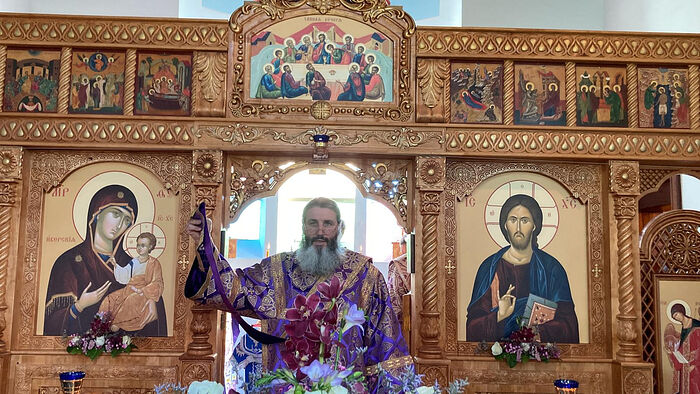
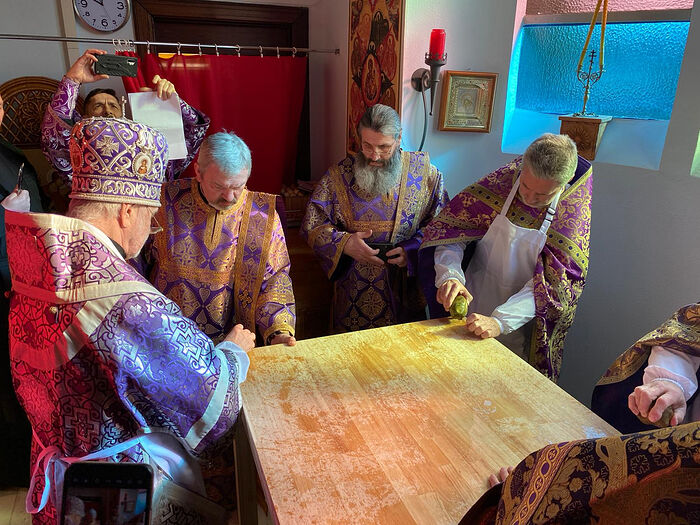
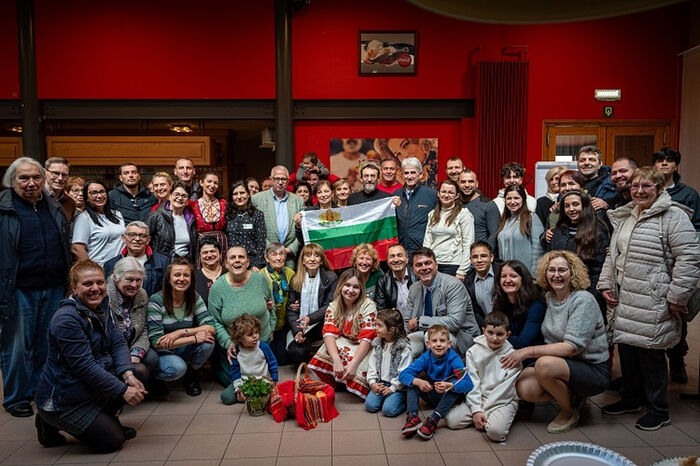
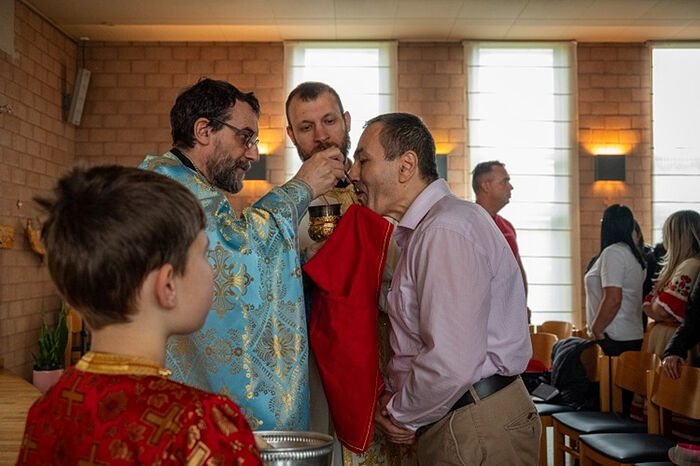
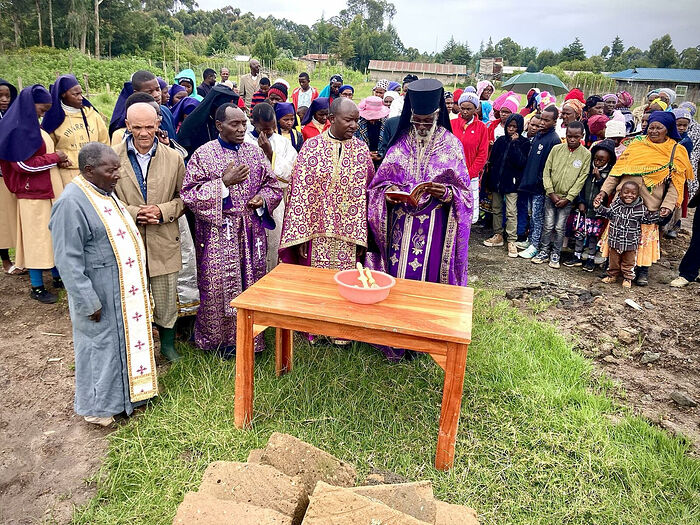
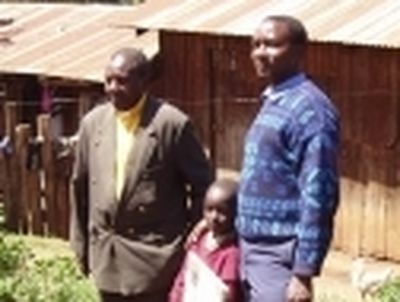 St Barnabas Orthodox Orphanage and SchoolWe started St Barnabas Orthodox Orphanage and School in a poverty scarred neighborhood and it impelled us to start learning about the challenges facing our neighbours especially their children.
St Barnabas Orthodox Orphanage and SchoolWe started St Barnabas Orthodox Orphanage and School in a poverty scarred neighborhood and it impelled us to start learning about the challenges facing our neighbours especially their children.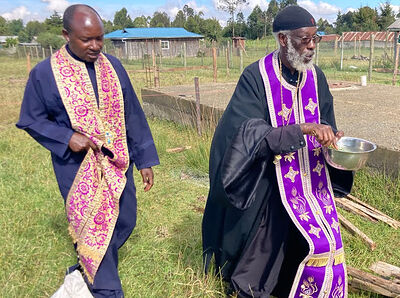 Kenya: Ground broken on new Church of St. Nektarios that will serve local orphanage (+VIDEO)On Tuesday, March 26, ground was broken for the construction of a new church in honor of St. Nektarios of Aegina (Patriarchate of Alexandria) in rural Kenya.
Kenya: Ground broken on new Church of St. Nektarios that will serve local orphanage (+VIDEO)On Tuesday, March 26, ground was broken for the construction of a new church in honor of St. Nektarios of Aegina (Patriarchate of Alexandria) in rural Kenya.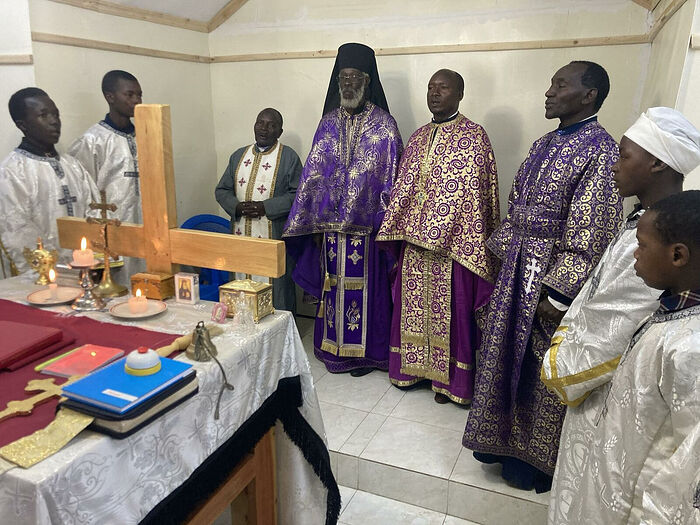
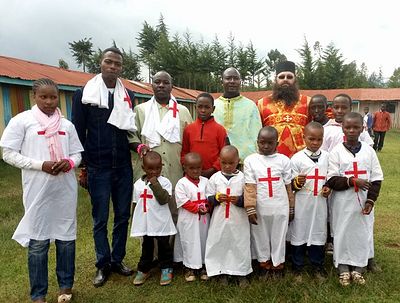 11 baptized at Kenyan orphanage during visit of “Orthodox Africa” charity directorThe joyous occasion of the Baptisms came during the visit of Fr. Silouan (Brown), the founder and director of Orthodox Africa, which currently supports five missions in Kenya, and one parish in Uganda, with the goal of helping them achieve long-term sustainability.
11 baptized at Kenyan orphanage during visit of “Orthodox Africa” charity directorThe joyous occasion of the Baptisms came during the visit of Fr. Silouan (Brown), the founder and director of Orthodox Africa, which currently supports five missions in Kenya, and one parish in Uganda, with the goal of helping them achieve long-term sustainability.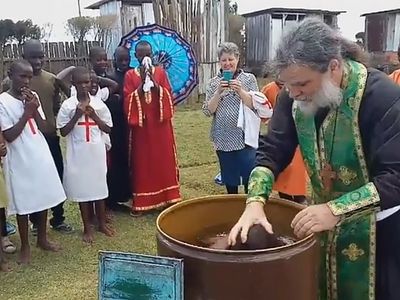 13 children baptized into Christ at Kenyan orphanage (+ VIDEO)Mass Baptisms have become somewhat commonplace in Africa in the past few years. The latest joyous news comes from the St. Barnabas Orphanage and School in Njabini, Kenya, where 13 children were united to Christ in holy Baptism on Saturday, January 26.”>January 2019.
13 children baptized into Christ at Kenyan orphanage (+ VIDEO)Mass Baptisms have become somewhat commonplace in Africa in the past few years. The latest joyous news comes from the St. Barnabas Orphanage and School in Njabini, Kenya, where 13 children were united to Christ in holy Baptism on Saturday, January 26.”>January 2019. 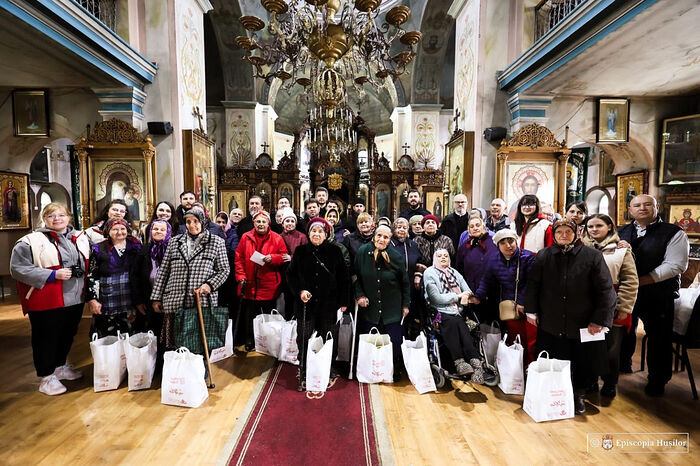
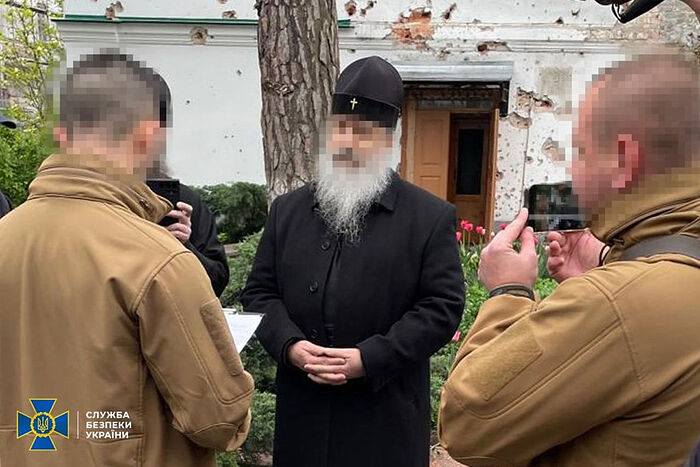
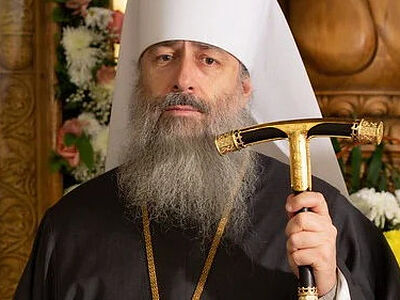 Security Service detains Metropolitan-abbot of Ukrainian Church’s Svyatogorsk LavraSecurity Service (SBU) employees blocked and searched the monastery this morning.
Security Service detains Metropolitan-abbot of Ukrainian Church’s Svyatogorsk LavraSecurity Service (SBU) employees blocked and searched the monastery this morning.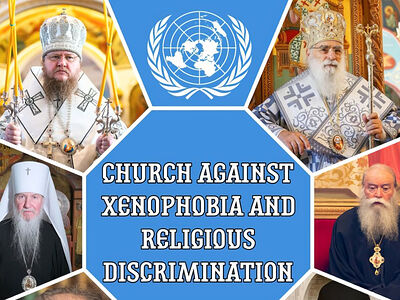 Hierarchs of Local Churches come together to form human rights groupThe press release on the creation of the association notes that UN representatives have repeatedly raised concerns about the violations of the rights of the UOC and its faithful.
Hierarchs of Local Churches come together to form human rights groupThe press release on the creation of the association notes that UN representatives have repeatedly raised concerns about the violations of the rights of the UOC and its faithful.